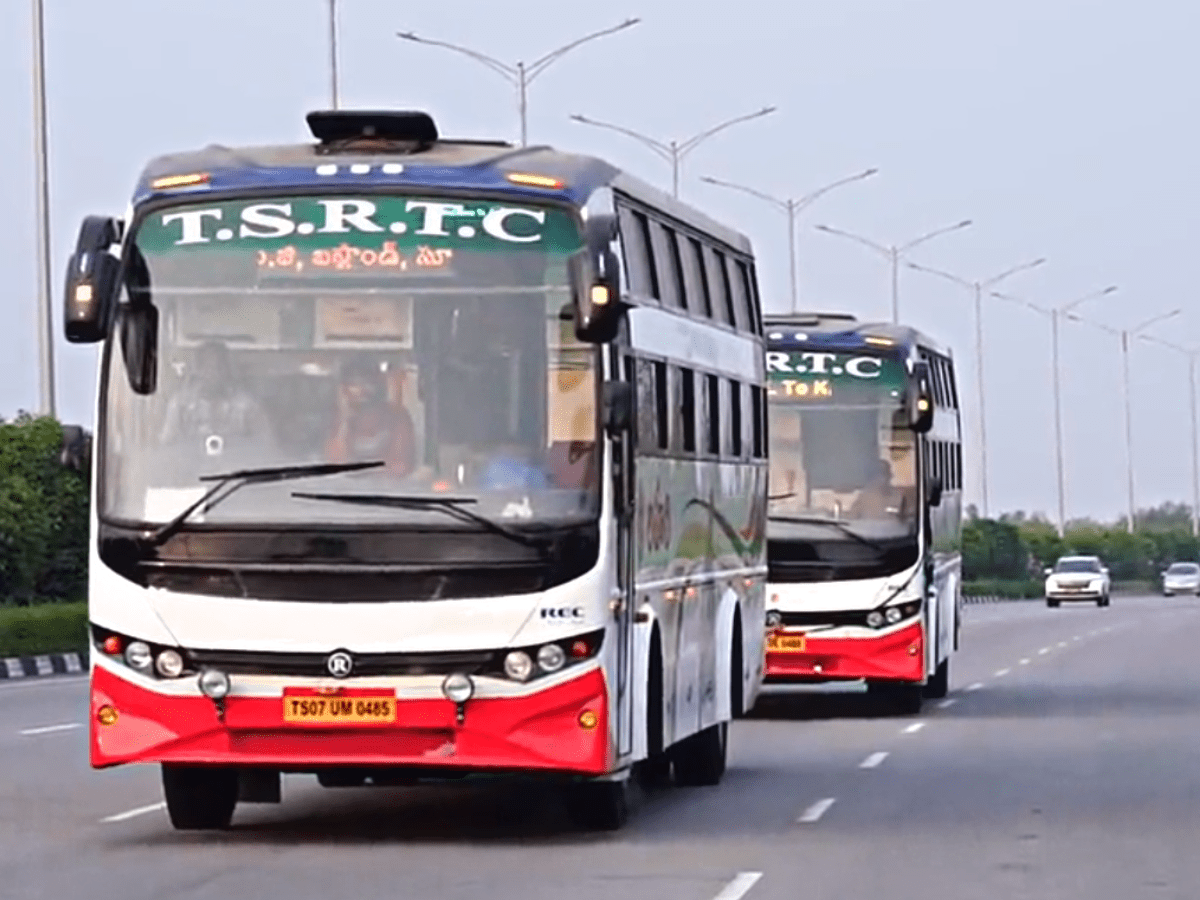
The Telangana State Road Transport Corporation (TSRTC) and its workforce of over 43,000 have long yearned for better pay and working conditions. The 2019 strike, spanning an unprecedented 55 days, sought bona fide recognition of its workers as State government employees. Following protests on August 5 and a unity march to the Raj Bhavan in Hyderabad, Governor Tamilisai Soundararajan, after locking horns with the Telangana government, finally gave her approval to introduce the TSRTC (Absorption of Employees into Government Services) Bill, 2023 in the State Legislative Assembly.
While a gazette notification is awaited, pressing concerns about workers’ welfare persist.
With 99 depots grouped in 11 regions, 9,232 buses and 43,971 workers, the TSRTC is among India’s largest State Road Transport Undertakings (SRTUs). In 2014-15, it was the third-largest SRTU, as its fleet constituted over 7% of the fleet strength of nearly five dozen Indian SRTUs combined. Each day, 45 lakh passengers use TSRTC buses, indicating its significant role in public transport and the paramountcy of the welfare of workers.
The primary reason behind workers and unions seeking a merger was better pay. With two overdue pay revisions and a third soon to come, it remains unclear what the percentage of revision after absorption is likely to be, or whether these will be implemented at all.
Two pay revisions pending
“Two pay revisions are pending – one from 2017 and the other from 2021. In 2016, interim relief of 16% was given, but this is little. Pay revision cannot be 16% and should be higher – about 30%. We have demanded more. All arrears should be calculated retrospectively,” said Thomas Reddy, General Secretary of the RTC Telangana Mazdoor Union.
The Staff and Workers Federation, another TSRTC trade union, also raised similar concerns. In a recent representation made to the Special Chief Secretary of the Finance Department, the union reiterated that several promises made by the CM remain unfulfilled. While pay revision was on the list of demands, better working conditions for women workers, including three months of child care leave in addition to existing maternity leave, were sought.
Meanwhile, former TSRTC board member M Nageswara Rao urged the government to pay the Dearness Allowance calculated from July 1, 2019. He also said that payment of leave encashment dues pending for nearly nine years would greatly ameliorate the situation of workers.
While uncertainty abounds for workers over payment of dues, those seeking answers highlighted the lack of clarity pertaining to the equivalence of posts. For instance, a conductor who put in approximately 16 years of service sought to know how he would be categorized once workers are treated as government employees. “Will I be treated as a class IV employee, like a peon or an attender, or a watchman? This too is important. Will the number of years of service impact the category in which I am placed? How will this determine dignity and salary?” he asked.
TS not engaging with workers’ unions
Workers also stated that they are regulated by the Motor Transport Workers’ Act, 1961. This Act caps the number of hours each worker has to put in at eight per day, and 48 per week. Additionally, it prescribes the intervals of rest, leaves, and penalties.
After the 2019 strike, TSRTC’s trade unions alleged that the Telangana government has not been engaging with them. A former union leader cautioned that post-merger, unions could end up having a limited role. “Workers will be treated as government employees. The issue is that unions are now regulated by the Industrial Disputes Act. Once they become government employees, their functions will be under the ambit of the Government Service Rules. This indicates that the role of the unions will be massively reduced,” he said. However, others said that unions would metamorphose into government workers’ associations.
As on August 17, the Governor’s secretariat sent the TSRTC (Absorption of Employees into Government Service) Bill, 2023, has been referred to the Law Secretary for legal opinion. “This is a normal practice stipulated in the relevant rules,” a press communiqué from the Governor’s office reads. “Furthermore, the Hon’ble Governor has provided ten recommendations based on representations and in the best interests of the employees and the well being of the corporation while permitting the introduction of the Telangana State Road Transport Corporation (Absorption of Employees into Government Service) Bill of 2023 in the Assembly.”



